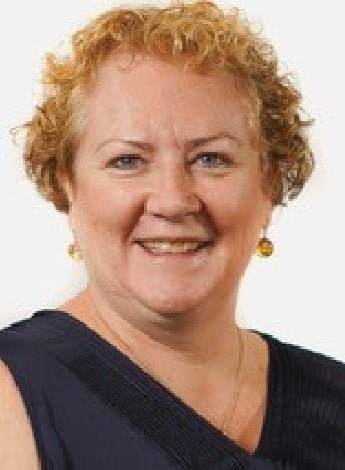
Physios and WorkSafe team up for pain education

WorkSafe Victoria recruited APA pain physiotherapists to help injured workers with complex, persistent pain recover and navigate the system.
WorkSafe Victoria’s pain education pilot program
In April 2020, WorkSafe Victoria launched a pain education pilot program, working with APA titled pain physiotherapists to improve treatment and recovery pathways for injured workers—clients with complex, persistent pain who were being considered for spinal surgery.
The pilot’s success led to an expansion to include clients at risk of developing persistent pain or struggling to recover and return to work because of their pain.
The pilot’s services were offered in addition to clients’ current treatment, recognising the differing roles of the treating physiotherapist and the pain physiotherapist in improving outcomes for injured workers.
A number of APA pain physiotherapists took part in the pilot, including three of the pain physiotherapists who were awarded specialisation in this field by the Australian College of Physiotherapists in 2021.
Spinal surgery review
Since July 2017, most clients evaluated for complex spinal surgery will attend a multidisciplinary independent medical examination with a spinal surgeon and a pain medicine specialist.
Recommendations from these sessions are shared with the managing WorkSafe agent. In Victoria, multidisciplinary independent medical examinations were suspended during COVID-19 lockdowns, causing significant and concerning delays.
The pain education pilot program began in response to these COVID-19-related delays in determining a client’s need for spinal surgery.
Affected clients could choose to engage in a triage interview with a clinical panellist with APA titled membership in both musculoskeletal and pain physiotherapy.
Clients could then opt for up to five one-hour sessions with a second, community-based pain physiotherapist in addition to their existing treatment.
Services were delivered to clients in person, when lockdowns permitted, or via telehealth.
More than 100 workers engaged in the triage interviews and more than 50 have elected to go forward with the pain education sessions.
After the interview, the clinical panellist would share a summary with the client’s chosen pain physiotherapist (with the client’s permission), who would then arrange a consultation with the client.
The pain physiotherapist would then collaborate with the client’s existing treaters as well as the agent case manager to share their recommendations for the client.
Feedback
WorkSafe conducted 14 interviews with clients, pain physiotherapists, GPs and the WorkSafe Clinical Panel team.
The feedback was outstanding, with all interviewees recommending the program and 85 per cent recommending earlier implementation for clients.

Anne Daly describes how the WorkSafe pain education pilot program aims to improve outcomes for injured workers with complex, persistent pain.
Some of the interviewed clients thought that they had been offered this program because they had lodged a complaint.
However, every client waiting for a multidisciplinary independent medical examination was offered the program to assist with their recovery.
The following are direct quotes from clients:
‘I can’t fight the system; it feels like I’m a number… it’s nice to no longer be perceived as a number on a page.’
‘I could feel they understood what I was going through and having that extra support really helped me gain my composure again.’
‘Having someone talk to you about pain management and different options was really helpful—there were other pain management options available that I didn’t know about; it was educational.’
An added bonus was the exchange of knowledge and ideas between the pain physiotherapist and the usual treating physiotherapist—not just about pain, but about navigating the WorkSafe scheme.
The project also allowed for greater recognition of the challenges faced by clinicians in rural and regional areas, who often reported difficulty accessing pain services.
Kane Rodda, APA Pain Physiotherapist and APA Musculoskeletal Physiotherapist:
‘I have valued the opportunity to work alongside local physiotherapists in partnership to improve outcomes for patients experiencing persistent pain.
'It has been highly rewarding to provide support to and share pain education resources with local regional physiotherapists.
'The pain education pilot program has improved access to services for those living in rural and regional areas, who may find it difficult and daunting to travel to metropolitan providers.
'We are continuing to learn how we can do this better.
'I have developed broader skills and seen the vital importance of open and timely communication to ensure that there is synergy and consistent messaging within the treating team.’
Lee Bray, APAM:
‘I am grateful to have recently been able to work in collaboration with a titled pain physiotherapist as part of the pain education pilot program.
'As a clinician working in regional Victoria, I’ve found that effective treatment of clients with persistent pain is often a challenge.
'This collaborative approach helped my client to understand their pain issue better as well as removing some of the fear surrounding their condition.
'It was also very beneficial in improving my knowledge about working with patients with persistent pain.
'This team approach to dealing with complex musculoskeletal and pain issues is certainly something that I see as being very beneficial in the future.’
Recovery and return-to-work strategic case conferences
In the second pilot, strategic return-to-work case conferences provided extra support to clients at risk of a delayed recovery and return to work.
WorkSafe clinical panellists made contact with existing treaters whenever possible to discuss a client’s barriers to recovery and treatment options.
To address the barrier of persistent pain, clients were offered sessions with a pain physiotherapist in addition to their existing treatment and with their consent.
Building on the success of the first pilot, forms were devised allowing two-way communications between clinicians.
This enabled treating clinicians to gain greater input and feedback.
Pain physiotherapists also prioritised calling existing clinicians as well as providing recommendations to the case manager at the conclusion of their sessions.
This collaborative approach allowed treaters and case managers to offer clients more considered and tailored recovery pathways.
Results of the pilot
Early indications from this pilot suggest that:
- clients are highly satisfied with their experience with pain physiotherapists
- clients have small but clinically meaningful gains on the outcome measures completed before and after the sessions
- around 50 per cent of clients recommended for the pain education sessions decided not to go ahead with them—common reasons included a lack of support from the treating healthcare provider (physiotherapist and/or GP) or a client’s lack of understanding about why these sessions may benefit them.
Providing individualised and easy-to-understand pain education to a client is a distinct skill developed through education, training and peer review.
However, not all physiotherapists have these skills or feel comfortable using them.
Titled pain physiotherapists have been credentialed by our profession and are recognised for having these skills.
The pilots highlighted the need for greater pain literacy when treating clients with complex injuries and utilising this uniquely skilled group of physiotherapists has significantly contributed to the program’s success.
These pain physiotherapists are building greater pain literacy within the broader physiotherapy profession, providing support and mentoring to other clinicians as they support their clients with complex pain presentations.
Building on the program’s early success, WorkSafe will continue to run the pain education pilot program in 2022 to facilitate better outcomes for injured workers.
Feedback is welcome on both of these pilots. To submit your feedback or learn more about these projects, email clinical_panel@worksafe.vic.gov.au or click here.
>> Dr Anne Daly, FACP, is a Specialist Pain Physiotherapist (as awarded by the Australian College of Physiotherapists in 2021) and an APA Musculoskeletal Physiotherapist. She is a member of the WorkSafe Clinical Panel, the allied health lead for the TAC Clinical Panel, a lecturer in Pain Sciences at La Trobe University and a director of the PainCare Collective, a multidisciplinary group working with people with persistent pain and training other clinicians to do the same.
© Copyright 2025 by Australian Physiotherapy Association. All rights reserved.





